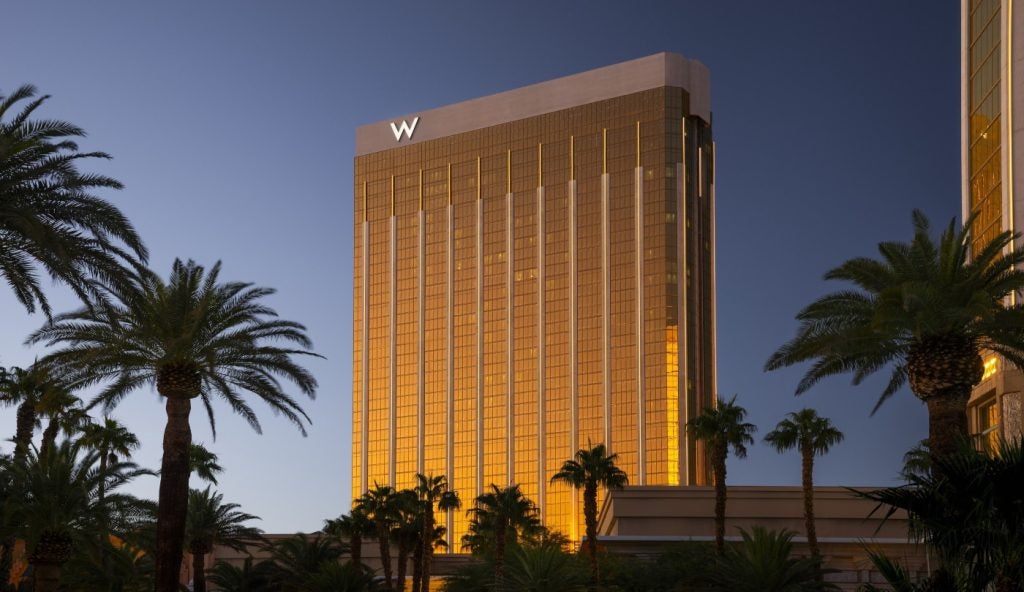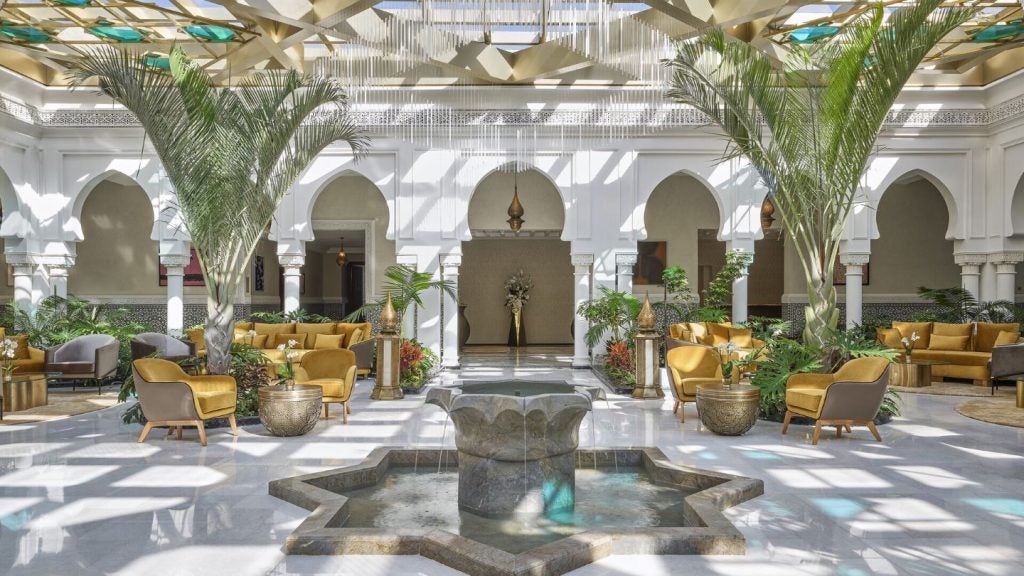
Interviewing Starwood executives on the day of aloft’s London launch party is no easy feat. Within two minutes of settling down in the lobby, our conversation is interrupted by a loud blast of rock music. Sound check now very much in progress, we decide to move proceedings upstairs, but urban free-runners precariously balancing themselves above a multistorey drop ahead of tonight’s performance prove to be equally distracting.
But this heady fusion of entertainment and energy sits rather neatly with the brand’s aspirations, even if the location, a rather soulless concrete expanse adjoining the gargantuan ExCel conference centre, jars somewhat with the hip urban dynamic it so likes to project.
This is the group’s second European aloft property, following its Brussels debut almost exactly a year ago. Having launched more than 50 hotels worldwide in the three years since its inception, the basic template is now firmly established. "There are some variations that are region or site-specific, but the core components and qualities are instantly recognisable," says Brian McGuinness, Starwood’s senior vice-president of speciality select brands. "In whatever geography you wish to mention, there are far more similarities than differences among the needs of our guests, and the ways in which they engage with the hotel experience."
This demographic is the much-loved marketing group ‘Generation Y’, defined by its familiarity with communications, new media and digital technologies. The fact that aloft has expanded so quickly – upcoming openings include China, Costa Rica, Thailand, Canada, Colombia and India – supports McGuinness’s argument that it represents a truly global crowd.
"From the very start this has been an international brand," he explains. "Visit Chennai, for example, and one is struck by how absolutely connected these people are. They are living fast and free, engaging with the world in a way that is almost unrecognisable to earlier generations and that applies to whatever market you wish to mention. Hotels that enable or even enhance such connectivity represent true luxury to this group far more that a smart restaurant or an army of staff. We have tapped into a market that others are yet to fully realise and our success demonstrates its potential."
One is certainly hard-pressed to think of another select service, design-led brand operating in the mid-market, and McGuinness compares the aloft offering with H&M, fusing a focus on value with a youthful energy and ability to tap into the zeitgeist. Music and artwork are key components, with the hotel making concerted efforts to partner with the surrounding cultural environment and celebrate local talent. This is further emphasised by a high proportion of staff drawn from the hotel’s immediate vicinity, and there seems to be a genuine belief that locals will also frequent the bar, despite its somewhat isolated location.
How well do you really know your competitors?
Access the most comprehensive Company Profiles on the market, powered by GlobalData. Save hours of research. Gain competitive edge.

Thank you!
Your download email will arrive shortly
Not ready to buy yet? Download a free sample
We are confident about the unique quality of our Company Profiles. However, we want you to make the most beneficial decision for your business, so we offer a free sample that you can download by submitting the below form
By GlobalData"We need to create that energy and buzz," says McGuinness. "This can become a neighbourhood outpost and that’s something we’ve seen our other properties achieve. Our guests don’t want to walk into a sterile hotel environment; they must feel at the centre of things and that puts the impetus on us positioning ourselves as a destination of choice for international travellers and passing trade."
It is an approach that has seen early success in Brussels – aloft is already rated first in its class within the city – and it raises the question of why European expansion has not been more accelerated. Michael Wale, Starwood’s senior VP for north-west Europe, believes the business model has taken time to bed in. "The franchise trend is still evolving in Europe and remains somewhat behind other parts of the globe in terms of progress," he explains. "This is a franchise brand, but we are managing both the London and Brussels properties in order to demonstrate exactly what the brand can offer to European investors. We see it generating real momentum."
Wale reveals that Scandinavia is a region of focus, but is tight-lipped about where the next property on the continent might be. Tertiary cities in the UK are also mentioned, the proviso being that any location in question can support an average room rate of €90-120.
In his eyes, the first two guests to arrive on the day of aloft’s London opening provide a perfect example of its potential customer base. The first, an American in his 40s working in the financial services sector, was travelling on business and already an established member of the Starwood Preferred Guest programme. The second, an independent technology blogger, had uploaded YouTube feeds of his initial impressions within minutes of arrival and was soon engaging directly with the hotel on Twitter.
"We’re providing something that really resonates with guests," says Wale. "Not everyone who comes through the door spends all of his or her time plugged into a laptop; a lot of people just want to come somewhere that’s different to your typical business hotel and provides an engaging experience. That accounts for a high proportion of ‘Generation X’ as well."
Bucked a trend
aloft represents the second new brand launched onto the London market by Starwood in the past 12 months, following the opening of W Leicester Square in February, although Wale acknowledges that European expansion plans have been squeezed by the ongoing problem of accessing liquidity. aloft has also bucked a trend on the Continent through its first two properties both being new builds, but Wale insists that this need not necessarily be the case for future openings. "It is a product that is certainly open to conversions," he explains. "We want to expand aggressively and so it’s important we keep our options open."
With the nominally US-based McGuinness heading straight on to Barcelona after London for the opening of a Four Points by Sheraton, it would seem that there is a general appetite for the select service experience. Over the longer term, does this equate to a move away from traditional operating models?
"There will always be a space for hotels that offer your typical services and promise troughs of bacon and eggs in the morning," McGuinness replies. "The interesting thing is the lessons our other brands can take from what’s happening in the select service area. This sector really is an incubator for new ideas, and whether that’s environmental innovations being seen at our Element hotels or the approach to new media and social networking employed by aloft, ideas can feed back into the group as a whole."
Whether guests will be seeing urban free-runners at Luxury Collection or St Regis properties in the immediate future is more open to conjecture.

This article was first published in our sister publication Hotel Management International.







